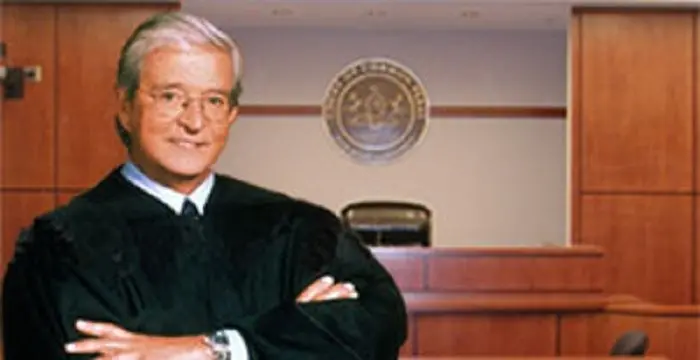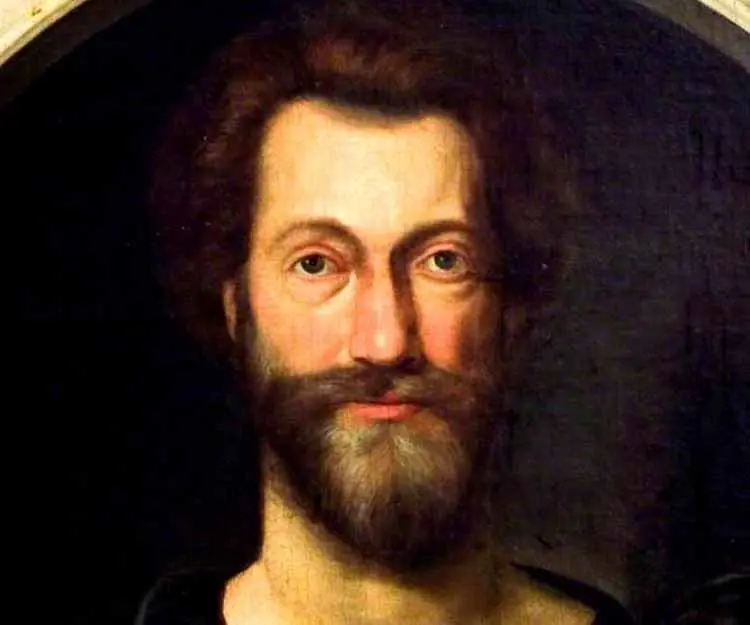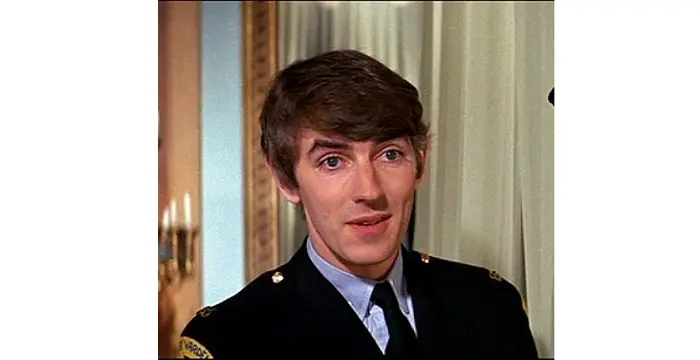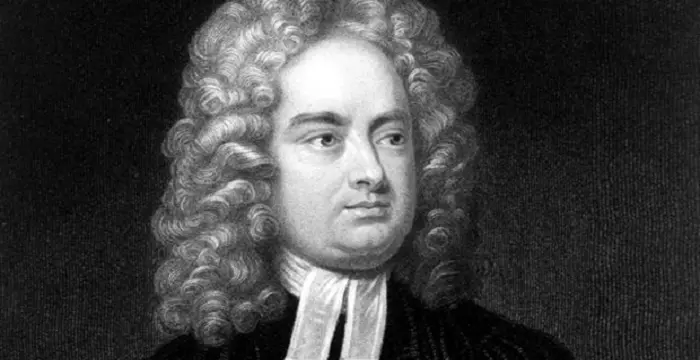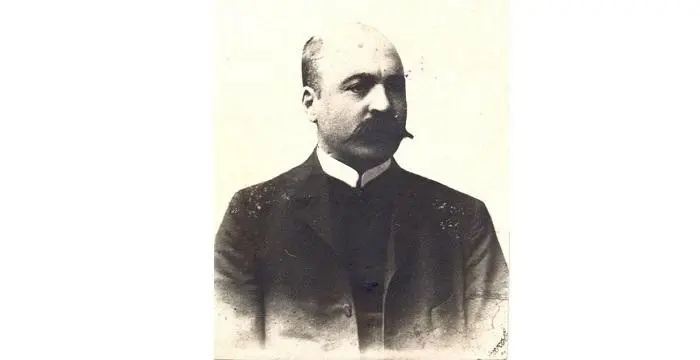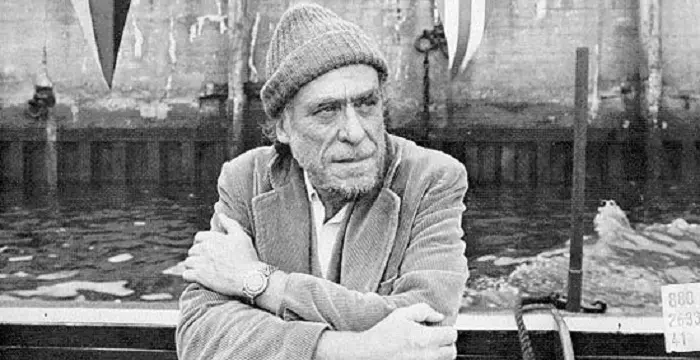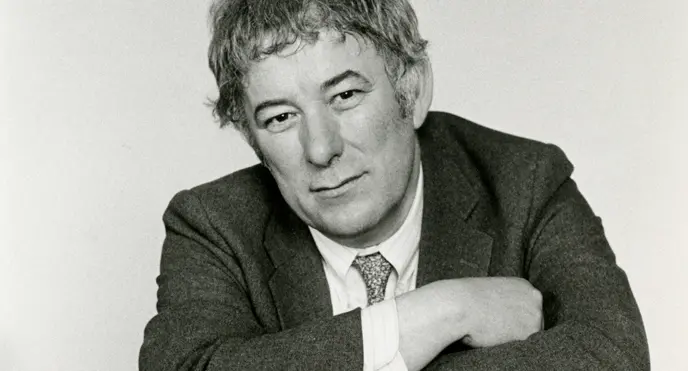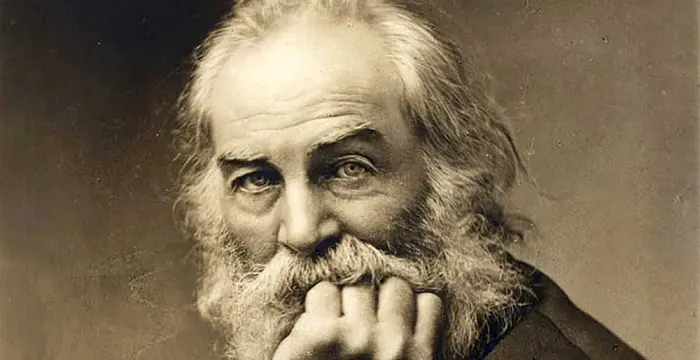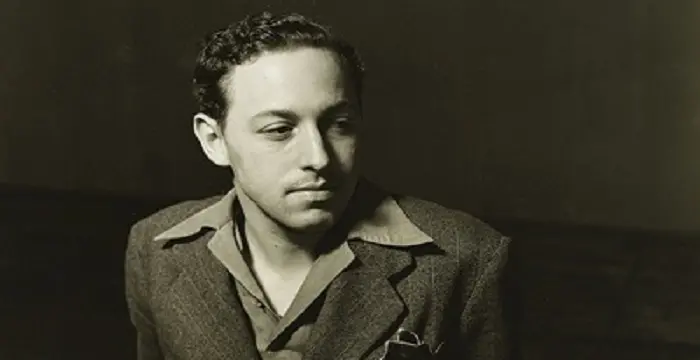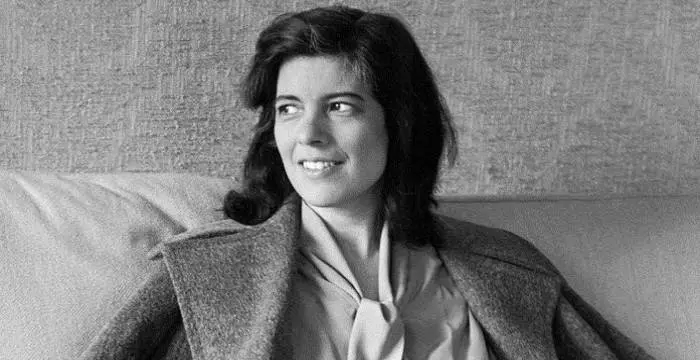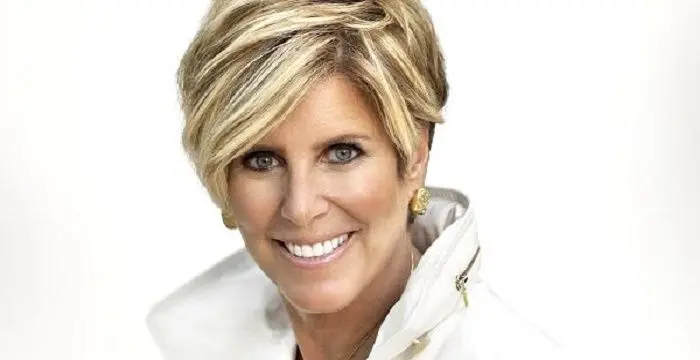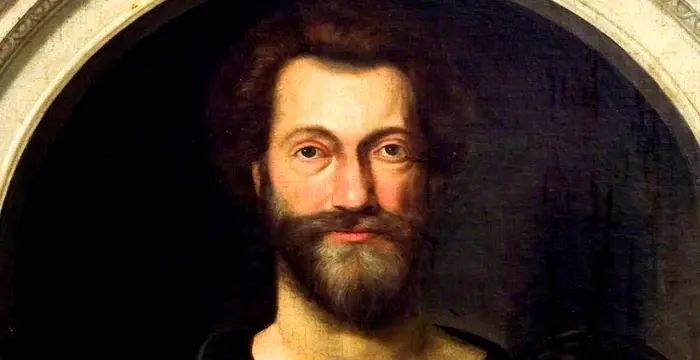
John Donne - Satirist, Timeline and Family
John Donne's Personal Details
John Donne was a famous English poet, satirist, lawyer and priest of his time
| Information | Detail |
|---|---|
| Birthday | January 22, 1572 |
| Died on | March 31, 1631 |
| Nationality | British |
| Famous | Oxford University, Writers, Poets, Lawyers, Satirist |
| Spouses | Anne More |
| Siblings | Henry, Katherine, Mary |
| Childrens | Bridget, Constance, Elizabeth, Francis, George, John, Lucy, Margaret, Mary, Nicholas |
| Universities |
|
| Notable Alumnis |
|
| Birth Place | London, England |
| Religion | Anglican/Episcopalian |
| Epitaphs | He lies here in the dust but beholds Him, whose name is Rising |
| Gender | Male |
| Father | John Donne |
| Mother | Elizabeth Heywood |
| Sun Sign | Aquarius |
| Born in | London, England |
| Famous as | Poet, lawyer, satirist |
| Died at Age | 59 |
// Famous Lawyers
Sunny Hostin
Sunny Hostin is an American lawyer, social commentator, columnist and journalist. Check out this biography to know about her childhood, family life, achievements and fun facts about her.
Jerry Sheindlin
Jerry Sheindlin is an American judge, author, and television personality. Check out this biography to know about his childhood, family life, achievements and fun facts about him.
Phaedra Parks
Phaedra Parks is an American lawyer and reality TV personality. Let’s take a look at her family, personal life, achievements, and some fun facts.
John Donne's photo
Who is John Donne?
John Donne was a famous English poet, satirist, lawyer and priest of his time. Although he is best remembered as the founder of metaphysical school of poetry, he was also one of the foremost preachers of his time in the whole of England. Born into a recusant Roman Catholic family of Welsh descent, he later moved to the Anglican Church and was appointed the Chief Secretary to the Lord Keeper of the Great Seal. However, his secret marriage to his employer’s niece not only caused him to lose his job, but it also ruined his scope for holding any other public position. Therefore, he had to live in abject poverty for about a decade. His fortunes turned when his anti-Catholic polemic ‘Pseudo-Martyr’ was published in 1610. It not only helped him to receive patronage of great noblemen like Sir Robert Drury of Hawsted, but also the favor of King James I, and after his death of King Charles I. Ultimately, he joined the Church of England at the King’s behest and within seven years, became the Dean of St. Paul’s Cathedral, London. All along he continued his literary pursuits. His works, noted for strong sensual style, continue to influence English poets even now.
// Famous Satirist
Peter Edward Cook
Peter Cook was one of the most talented comedians Britain has ever produced. Read the biography below to learn all about his childhood, career, personal life and timeline.
Jonathan Swift
Jonathan Swift was an Anglo-Irish poet, writer and cleric who gained reputation as a great political writer and an essayist. Check out this biography to know about his childhood, family life, achievements and other facts related to his life.
Jalil Mammadguluzadeh
Jalil Mammadguluzadeh was a famous Azerbaijani writer and satirist. This biography gives detailed information about his childhood, life, works and timeline.
Childhood & Early Years
John Donne was born on 22 January 1573 in London. His father, also named John Donne, was a warden of the Ironmongers Company and a practicing Roman Catholic at a time, when adherence to the religion was a punishable offence.
His mother, Elizabeth Heywood, also from a recusant Roman Catholic family, was the daughter of the reputed playwright and poet John Heywood. He had several siblings including a brother named Henry and two sisters named Mary and Catherine.
In 1576, when John was not even four years old, his father died. His mother remarried Dr. John Syminges, a wealthy widower with three children, within a few months of her first husband’s death. Thus young John Donne was raised by his mother and stepfather.
Although there is no proof, it is generally believed that Donne began his education at home under a Jesuit. His maternal uncle, Jasper Heywood, was a Jesuit priest and that might have given rise to such ideas.
In 1583, as John Donne entered his eleventh year, he was admitted to Hart Hall, now Hertford College, University of Oxford. He studied there for three years and then shifted to the University of Cambridge, where he studied for three more years.
However, at that time, to receive their degrees, graduates were required to take the Oath of Supremacy. As a Roman Catholic, he refused take any such oath and so he did not get his degrees. Thereafter in 1591, he entered Thavie's Inn to be trained as a barrister.
Later on 6 May 1592, he was admitted to Lincoln's Inn, one of the Inns of Court in London, the professional associations for barristers in England and Wales. By that time, he had inherited considerable fortune and so instead of practicing, he spent his wealth on women, literature and travel.
Career & Later Life
In 1593, his brother Henry, a university student, was arrested for harboring William Harrington, a Catholic priest. Subsequently, he was lodged in Newgate prison, where he died of bubonic plague. The incident shook John Donne’s conviction in Roman Catholicism.
He then travelled across Europe, subsequently joining the Anglo-Spanish War. In 1596, he fought with Sir Robert Devereux, the Earl of Essex and Sir Walter Raleigh against the Spanish at Cadiz and witnessed the city being ransacked by the British troop.
Next in June 1597, he took part in the British expedition to Azores. Once the expedition failed, instead of returning to England with the armada, Donne spent some time in Italy and Spain before returning to the country.
By the time he returned to England in 1598, 25 year old John Donne was prepared for the diplomatic career. That very year, he was appointed Chief Secretary to the Lord Keeper of the Great Seal, Sir Thomas Egerton.
It is plausible that he had by then become an Anglican; otherwise, he would not have been appointed to the post. He now started living in Egerton's London home, York House, in the Strand and was treated, not as a servant, but more as a friend.
It was here that John Donne met Lady Egerton’s niece Anne More, daughter of George More, the Chancellor of the Garter and fell in love with her. Knowing that there was little chance of getting her father’s blessings, they secretly got married in December 1601.
Enraged, George More made sure that Donne lost his position as Chief Secretary under Sir Egerton. Not satisfied with that, More had him thrown into the notorious Fleet Prison. The priest and the witness were also put under arrest.
Later, it was proved that the marriage was legally valid and consequently, all of them were released. However, Donne was now without any job and there was little scope for him to get another public office. As a result, his financial position was very precarious.
His wife’s cousin, Sir Francis Wooley, provided them with a small accommodation in Pyrford, Surrey. Sometime in 1602, Donne was elected as Member of Parliament for the constituency of Brackley. But since this was not a paid position, his financial condition improved very little.
In the spring of 1605, Donne moved his family to Mitcham, London. Here he began to work as a lawyer, earning a meager income, still fighting poverty. In spite of such financial misery, he continued writing on theology, canon law, and anti-Catholic polemics, etc.
He also composed love lyrics, religious poetry, and complimentary and funerary verse. Thus he made many friends, who in 1607, urged him to take holy order in the Church of England.
However, he continued unsuccessfully to look for secular employment. In and around 1608, the condition became so bad that he even contemplated taking his own life. Instead, he wrote his famous poem, ‘Biathanatos', a work in which he defended suicide. Fortunately for him, good time was not far away.
In 1609 Anne’s father finally relented and provided them with her dowry. Moreover, with the succession of King James I of Scotland to the throne of England, coterie poetry became a fashion. Donne seized the opportunity and began to write poetries for wealthy friends and patrons.
In 1610, Donne published his anti-Catholic polemic ‘Pseudo-Martyr.’ In it, he established that Roman Catholics could support King James I without compromising their religious loyalty to the Pope. The poem won him the king’s favor and also the patronage from many prominent personalities.
Among them was MP Sir Robert Drury of Hawsted. Impressed by his talent, Drury became Donne's chief patron. In the following year, he took him on a tour across Europe. On their return, he provided Donne with an apartment in his large house in Drury Lane.
Donne now tried to get a place in the Court. Though King James I appreciated his poetries, he refused to give him the place. Instead he urged him to take up the holy order, which Donne finally did in 1615.
On January 23, 1615, John Donne was ordained deacon and priest. Soon, he was made a Royal Chaplain at the command of the king. In the same year, the Cambridge University conferred on him the degree of doctor of divinity.
In 1616, Donne was made a Reader of Divinity at Lincoln's Inn. Here he served as a minister of the Chapel, a position he held until 1622. Meanwhile, his wife died in 1617 and having lost his emotional anchor, he veered more towards his vocation.
In 1618, he became Chaplain to James Hay, Viscount Doncaster. As Doncaster was sent on a mission to Germany, Donne accompanied him. He remained in Germany for about two years, returning to England in 1620.
On 22 November 1621, Donne was made Dean of St Paul's, a position he held until his death. It was not only one of the most prestigious positions under the Church of England, but was also well-paying and he carried out his duties with efficiency and integrity.
Vey soon, his sermons began to attract a wide range of audiences and he became known as one of the foremost preachers of his time. Along with his Holy duties, he continued with his writing.
In 1623, John Donne became very ill. From his sickbed, he began contemplating on the relationship between physical and spiritual sickness. It culminated into a series of prose, covering death, rebirth, and the concept of sickness as a visit from God.
In 1624, these writings were published as ‘Devotions upon Emergent Occasions.’ In the same year, he became vicar of St. Dunstan-in-the-West. In the following year, he was made a prolocutor to King Charles I.
Throughout his life, John Donne continued giving sermons, 160 of which survive till today. Among them most famous was ‘Death's Duell, or A Consolation to the Soul, against the dying Life and the living Death of the Body.’ It was delivered before King Charles I in February 1631 at the Palace of Whitehall, shortly before his own death.
Major Works
’Devotions upon Emergent Occasions’, which John Donne wrote in 1623 from his sickbed, is said to be his most important work. The book has been divided into 23 parts, each of which covers what he thought and reflected upon on a single day.
‘Elegy XIX: To His Mistress Going to Bed’, full of erotic imagery, is a major example of Donne’s metaphysical poems. Through this poem, he reinvented Petrarchan poetic conventions of wooing from afar and at the same time, used Ovid's sexually aggressive language and style, thus creating an early specimen of libertine poetry.
Personal Life & Legacy
John and Anne Donne spent a major part of their married life in abject poverty. Yet, they were very close to each other. When Anne died on 15 August 1617, Donne vowed never to marry again and brought up his children single handedly.
In their sixteen years of married life, Anne bore him twelve children, two of whom were stillbirths. Their ten surviving children were Constance, John, George, Francis, Lucy, Bridget, Mary, Nicholas, Margaret, and Elizabeth.
Towards the end of his life, John Donne was afflicted with what is believed to be stomach cancer and died on 31 March 1631. He was later buried in Old St. Paul’s Cathedral. The John Donne Memorial, a bust statue sculpted from bronze by Nigel Boonham, was commissioned in the churchyard of the Cathedral in 2012.
Moreover, he has been commemorated as a priest in the calendar of the Church of England and in the Calendar of Saints of the Evangelical Lutheran Church in America.
Trivia
As John Donne was arrested shortly after his wedding in 1601, he wrote a letter to his wife from the prison, conveying the news. In it he wrote, ‘John Donne, Anne Donne, Un-Done.’
// Famous Poets
Charles Bukowski
Charles Bukowski was a German-born American novelist, short story writer and poet. With this biography, learn in details about his childhood, life, works, career and timeline
Seamus Heaney
Nobel Laureate Seamus Heaney was an Irish poet, playwright and translator. Know about his profile, childhood, life and timeline in the biography below.
Walt Whitman
Walt Whitman was an American poet, journalist and humanist. Read this brief biography to find more on his life & timeline.
John Donne biography timelines
- // 22nd Jan 1573John Donne was born on 22 January 1573 in London. His father, also named John Donne, was a warden of the Ironmongers Company and a practicing Roman Catholic at a time, when adherence to the religion was a punishable offence.
- // 1576In 1576, when John was not even four years old, his father died. His mother remarried Dr. John Syminges, a wealthy widower with three children, within a few months of her first husband’s death. Thus young John Donne was raised by his mother and stepfather.
- // 1583In 1583, as John Donne entered his eleventh year, he was admitted to Hart Hall, now Hertford College, University of Oxford. He studied there for three years and then shifted to the University of Cambridge, where he studied for three more years.
- // 1592Later on 6 May 1592, he was admitted to Lincoln's Inn, one of the Inns of Court in London, the professional associations for barristers in England and Wales. By that time, he had inherited considerable fortune and so instead of practicing, he spent his wealth on women, literature and travel.
- // 1593In 1593, his brother Henry, a university student, was arrested for harboring William Harrington, a Catholic priest. Subsequently, he was lodged in Newgate prison, where he died of bubonic plague. The incident shook John Donne’s conviction in Roman Catholicism.
- // 1596He then travelled across Europe, subsequently joining the Anglo-Spanish War. In 1596, he fought with Sir Robert Devereux, the Earl of Essex and Sir Walter Raleigh against the Spanish at Cadiz and witnessed the city being ransacked by the British troop.
- // 1597Next in June 1597, he took part in the British expedition to Azores. Once the expedition failed, instead of returning to England with the armada, Donne spent some time in Italy and Spain before returning to the country.
- // 1598By the time he returned to England in 1598, 25 year old John Donne was prepared for the diplomatic career. That very year, he was appointed Chief Secretary to the Lord Keeper of the Great Seal, Sir Thomas Egerton.
- // 1601It was here that John Donne met Lady Egerton’s niece Anne More, daughter of George More, the Chancellor of the Garter and fell in love with her. Knowing that there was little chance of getting her father’s blessings, they secretly got married in December 1601.
- // 1601As John Donne was arrested shortly after his wedding in 1601, he wrote a letter to his wife from the prison, conveying the news. In it he wrote, ‘John Donne, Anne Donne, Un-Done.’
- // 1605In the spring of 1605, Donne moved his family to Mitcham, London. Here he began to work as a lawyer, earning a meager income, still fighting poverty. In spite of such financial misery, he continued writing on theology, canon law, and anti-Catholic polemics, etc.
- // 1607He also composed love lyrics, religious poetry, and complimentary and funerary verse. Thus he made many friends, who in 1607, urged him to take holy order in the Church of England.
- // 1608However, he continued unsuccessfully to look for secular employment. In and around 1608, the condition became so bad that he even contemplated taking his own life. Instead, he wrote his famous poem, ‘Biathanatos', a work in which he defended suicide. Fortunately for him, good time was not far away.
- // 1609In 1609 Anne’s father finally relented and provided them with her dowry. Moreover, with the succession of King James I of Scotland to the throne of England, coterie poetry became a fashion. Donne seized the opportunity and began to write poetries for wealthy friends and patrons.
- // 1610In 1610, Donne published his anti-Catholic polemic ‘Pseudo-Martyr.’ In it, he established that Roman Catholics could support King James I without compromising their religious loyalty to the Pope. The poem won him the king’s favor and also the patronage from many prominent personalities.
- // 1615Donne now tried to get a place in the Court. Though King James I appreciated his poetries, he refused to give him the place. Instead he urged him to take up the holy order, which Donne finally did in 1615.
- // 23rd Jan 1615On January 23, 1615, John Donne was ordained deacon and priest. Soon, he was made a Royal Chaplain at the command of the king. In the same year, the Cambridge University conferred on him the degree of doctor of divinity.
- // 1616In 1616, Donne was made a Reader of Divinity at Lincoln's Inn. Here he served as a minister of the Chapel, a position he held until 1622. Meanwhile, his wife died in 1617 and having lost his emotional anchor, he veered more towards his vocation.
- // 15th Aug 1617John and Anne Donne spent a major part of their married life in abject poverty. Yet, they were very close to each other. When Anne died on 15 August 1617, Donne vowed never to marry again and brought up his children single handedly.
- // 1618In 1618, he became Chaplain to James Hay, Viscount Doncaster. As Doncaster was sent on a mission to Germany, Donne accompanied him. He remained in Germany for about two years, returning to England in 1620.
- // 22nd Nov 1621On 22 November 1621, Donne was made Dean of St Paul's, a position he held until his death. It was not only one of the most prestigious positions under the Church of England, but was also well-paying and he carried out his duties with efficiency and integrity.
- // 1623In 1623, John Donne became very ill. From his sickbed, he began contemplating on the relationship between physical and spiritual sickness. It culminated into a series of prose, covering death, rebirth, and the concept of sickness as a visit from God.
- // 1623’Devotions upon Emergent Occasions’, which John Donne wrote in 1623 from his sickbed, is said to be his most important work. The book has been divided into 23 parts, each of which covers what he thought and reflected upon on a single day.
- // 1624In 1624, these writings were published as ‘Devotions upon Emergent Occasions.’ In the same year, he became vicar of St. Dunstan-in-the-West. In the following year, he was made a prolocutor to King Charles I.
- // 1631Throughout his life, John Donne continued giving sermons, 160 of which survive till today. Among them most famous was ‘Death's Duell, or A Consolation to the Soul, against the dying Life and the living Death of the Body.’ It was delivered before King Charles I in February 1631 at the Palace of Whitehall, shortly before his own death.
- // 31st Mar 1631Towards the end of his life, John Donne was afflicted with what is believed to be stomach cancer and died on 31 March 1631. He was later buried in Old St. Paul’s Cathedral. The John Donne Memorial, a bust statue sculpted from bronze by Nigel Boonham, was commissioned in the churchyard of the Cathedral in 2012.
// Famous Writers
Joyce Meyer
Joyce Meyer is a Christian author and speaker. This biography provides detailed information about her childhood, life, achievements, works & timeline
Temple Grandin
Temple Grandin is a well-known American writer, autistic activist and animal expert. This biography profiles her childhood, life, achievements, career and timeline
Tennessee Williams
Tennessee Williams was one of the greatest playwrights of the 20th century. This biography of Tennessee Williams provides detailed information about his childhood, life, achievements, works and timeline.
Charles Bukowski
Charles Bukowski was a German-born American novelist, short story writer and poet. With this biography, learn in details about his childhood, life, works, career and timeline
Susan Sontag
Susan Sontag is an American critical essayist, cultural analyst, novelist, political activist, filmmaker and playwright of international repute. Read on to find out more about her childhood, career, profile and timeline.
Suze Orman
Suze Orman is an American television host, financial advisor, author and motivational speaker, famous for her ‘The Suze Orman Show’ on CNBC. This biography profiles her childhood, life, career, works, achievements and timeline.
John Donne's FAQ
What is John Donne birthday?
John Donne was born at 1572-01-22
When was John Donne died?
John Donne was died at 1631-03-31
Where was John Donne died?
John Donne was died in London, England
Which age was John Donne died?
John Donne was died at age 59
Where is John Donne's birth place?
John Donne was born in London, England
What is John Donne nationalities?
John Donne's nationalities is British
Who is John Donne spouses?
John Donne's spouses is Anne More
Who is John Donne siblings?
John Donne's siblings is Henry, Katherine, Mary
Who is John Donne childrens?
John Donne's childrens is Bridget, Constance, Elizabeth, Francis, George, John, Lucy, Margaret, Mary, Nicholas
What was John Donne universities?
John Donne studied at Oxford University, Hertford College, Oxford, University of Oxford, University of Cambridge
What was John Donne notable alumnis?
John Donne's notable alumnis is Oxford University
What is John Donne's religion?
John Donne's religion is Anglican/Episcopalian
Who is John Donne's father?
John Donne's father is John Donne
Who is John Donne's mother?
John Donne's mother is Elizabeth Heywood
What is John Donne's sun sign?
John Donne is Aquarius
How famous is John Donne?
John Donne is famouse as Poet, lawyer, satirist

